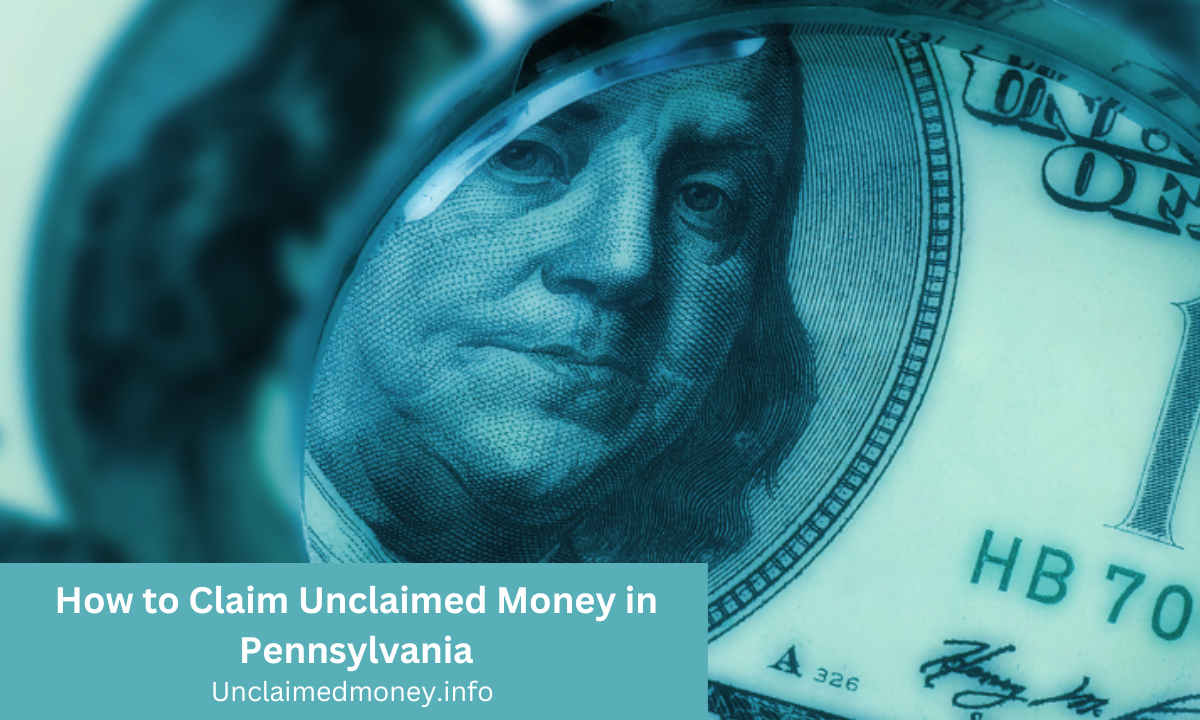Have you ever moved, changed your phone number or email address, or forgotten about an old bank account or insurance policy? If so, you may have unclaimed money in Pennsylvania waiting for you to claim it.
Unclaimed money refers to money that belongs to you but is being held by a financial institution or business because they were unable to reach you or didn’t have current contact information. Fortunately, claiming unclaimed money in Pennsylvania is a relatively simple process. Here’s what you need to know.
Search for Unclaimed Money
The first step to claiming unclaimed money in Pennsylvania is to search for it. You can do this by visiting the Pennsylvania Treasury’s website and using the “Treasury Hunt” tool.
You will need to enter your name or the name of a deceased family member, along with any other information you have, such as previous addresses, to conduct a thorough search. The Treasury Hunt tool will then display any unclaimed property associated with your name.
If you find unclaimed money, you will need to file a claim with the Pennsylvania Treasury to request that the money be returned to you.
File a Claim
To file a claim for unclaimed money in Pennsylvania, you will need to complete a claim form. You can download the form from the Pennsylvania Treasury’s website or request a paper copy be sent to you by mail. The claim form will ask for information such as your name, current address, and the amount of money you are claiming.
You will also need to provide documentation to support your claim. This may include a copy of your driver’s license or other government-issued identification, proof of your current address, and any documentation related to the unclaimed property, such as old account statements or insurance policies.
Submit Your Claim
Once you have completed the claim form and gathered all necessary documentation, you can submit your claim to the Pennsylvania Treasury. You can do this online, by mail, or by fax. The Pennsylvania Treasury will review your claim and determine if you are the rightful owner of the unclaimed money.
If your claim is approved, you will receive the money within a few weeks. If your claim is denied, you can appeal the decision.
Tips for Claiming Unclaimed Money in Pennsylvania
Here are a few tips to keep in mind as you search for and claim unclaimed money in Pennsylvania:
- Be wary of companies that offer to help you claim unclaimed money for a fee. You can claim unclaimed money on your own for free through the Pennsylvania Treasury’s website.
- Check regularly for unclaimed money. You never know when you might have unclaimed money waiting for you.
- Keep your contact information up to date with financial institutions and businesses. This will help ensure that any unclaimed property is returned to you in a timely manner.
- Be patient. It may take several weeks for your claim to be processed and for you to receive your money.
Conclusion
Claiming unclaimed money in Pennsylvania is a simple process that can result in a pleasant surprise. By using the Pennsylvania Treasury’s Treasury Hunt tool and following the steps outlined above, you can potentially claim money that belongs to you.
So take a few minutes to search for unclaimed money and file a claim – you might be pleasantly surprised by what you find!
Also Read:

